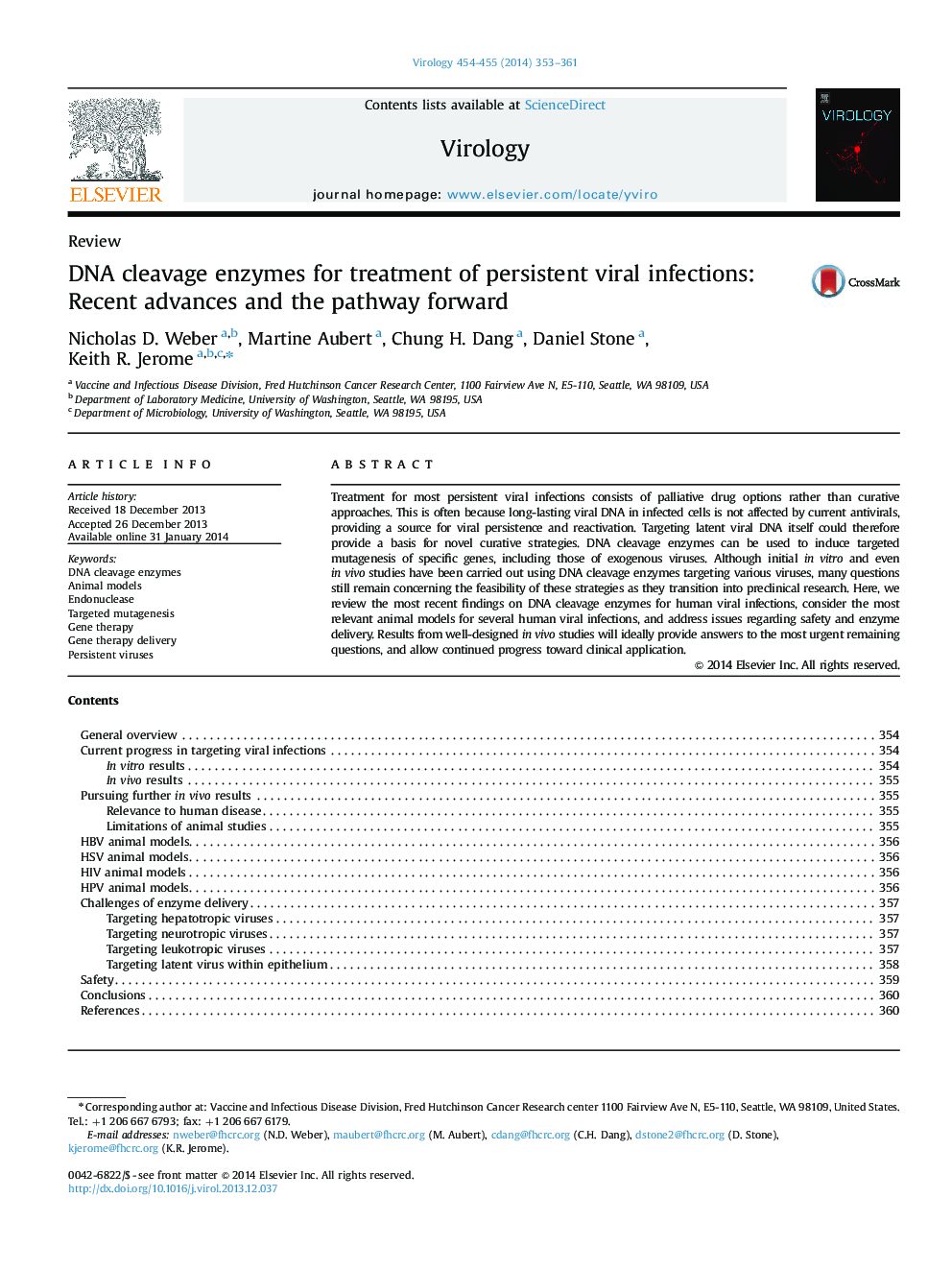| Article ID | Journal | Published Year | Pages | File Type |
|---|---|---|---|---|
| 6140402 | Virology | 2014 | 9 Pages |
â¢Recent in vitro and in vivo results for DNA cleavage enzymes targeting persistent viral infections.â¢Analysis of the best animal models for testing enzymes for HBV, HSV, HIV and HPV.â¢Challenges facing in vivo delivery of therapeutic enzymes for persistent viral infections.â¢Safety issues to be addressed with proper animal studies.
Treatment for most persistent viral infections consists of palliative drug options rather than curative approaches. This is often because long-lasting viral DNA in infected cells is not affected by current antivirals, providing a source for viral persistence and reactivation. Targeting latent viral DNA itself could therefore provide a basis for novel curative strategies. DNA cleavage enzymes can be used to induce targeted mutagenesis of specific genes, including those of exogenous viruses. Although initial in vitro and even in vivo studies have been carried out using DNA cleavage enzymes targeting various viruses, many questions still remain concerning the feasibility of these strategies as they transition into preclinical research. Here, we review the most recent findings on DNA cleavage enzymes for human viral infections, consider the most relevant animal models for several human viral infections, and address issues regarding safety and enzyme delivery. Results from well-designed in vivo studies will ideally provide answers to the most urgent remaining questions, and allow continued progress toward clinical application.
